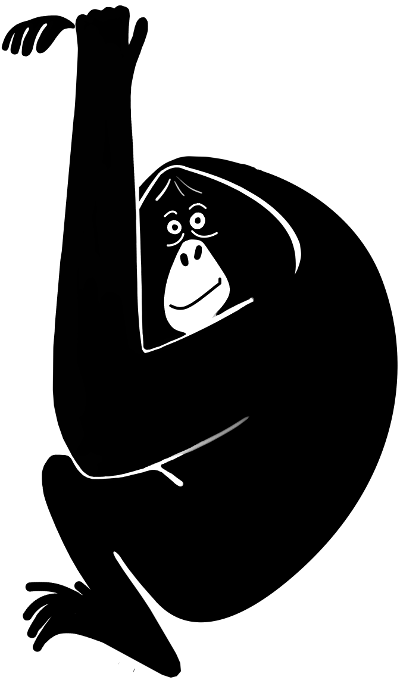PEN is delighted to feature and congratulate Wild Futures on celebrating their 50th anniversary! Special thanks to Paul Reynolds for this blog submission.
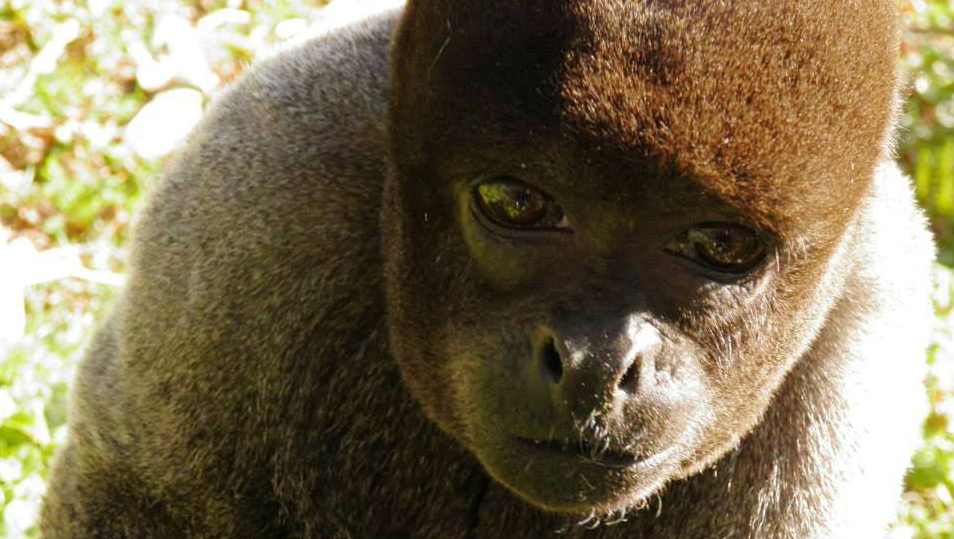
This year, Wild Futures is celebrating five decades dedicated to primate welfare and conservation. © Wild Futures
Wild Futures is a UK charity founded upon almost five decades of experience as a leader in the field of primate welfare and conservation, education, and sustainable practice. We are committed to protecting primates and habitats worldwide, with our UK flagship project The Monkey Sanctuary. This sanctuary houses monkeys rescued from the pet trade and other abusive captive situations. The Monkey Sanctuary is the only GFAS (Global Federation of Animal Sanctuaries) accredited sanctuary in Europe. Our education work played a role in securing this accreditation. We are also one of the founding members of EARS (European Alliance of Rescue Centres and Sanctuaries).
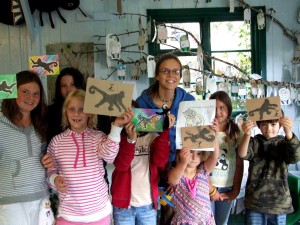
Students present their monkey artwork at The Monkey Sanctuary. © Wild Futures
Our educational work is multi-dimensional and involves a range of target audiences. This includes schools, universities and youth groups, local and central government, and around 30,000 people who visit and participate in conservation forums and groups at our sanctuary. We deliver our educational work through a formal and informal presentations, discussion groups, talks, and workshops. The purpose of our education program is to raise awareness of the serious conservation and welfare implications for victims of the primate pet trade and other issues affecting primates worldwide.
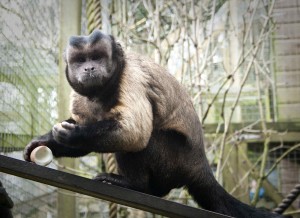
Meet Kodak, a capuchin monkey who resides at The Monkey Sanctuary. © Wild Futures
Some of the monkeys at our sanctuary were born in the wild and, through both legal and illegal means, have ended up as pets in Europe. Kodak, a capuchin monkey at our sanctuary, started his life in the rainforest and probably witnessed his family group being shot. He then found himself transported across the globe to Greece where he was kept in a photo shop until his owner realised he needed to be with others of his own kind. He is now the alpha male of his own group at our sanctuary.
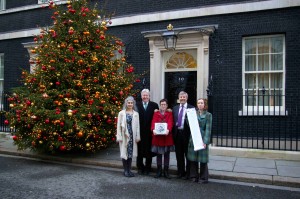
Wild Futures presents a petition to the UK Parliament. © Wild Futures
We estimate with the RSPCA (Royal Society for the Prevention of Cruelty to Animals) that there are at least 7,000 privately owned primates in the UK with some figures stating it is as high as 20,000, and there are signs that the primate pet trade is on the increase. Every day, our sanctuary witnesses the damage caused by this trade.
Of the 37 monkeys residing at our sanctuary, many display serious physical and psychological problems resulting from their time kept as pets. Our campaign work has led to much advancement, including political recognition that the trade in primates as pets is an issue within the UK, the publication of the Code of Practice for the Welfare of Privately Kept Non-Human Primates (to be used in conjunction with the Animal Welfare Act 2006), and strong public support, which has resulted in a parliament-led committee discussing the UK primate pet trade.
We are working to protect primates and habitats worldwide and strive for the day when all monkeys are free from the threat of the pet trade, malnutrition, and mental, physical and emotional suffering. An important part of our mission is achieved through our education program.
Download Wild Futures' primate education materials from PEN's Resource Library:
- Color By Numbers Greeting Capuchin
Not sure what color crayons/markers to use? No problem! This coloring page entitled "Greeting Capuchin" is a color by numbers.
- Monkey Poe-tree
Ask your students to write a poem about a monkey, color and cut the template, and then hang it on the "poe-tree" once complete.
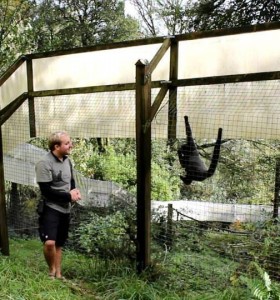
Paul Reynolds at The Monkey Sanctuary
This blog post was written by Paul Reynolds, who is Wild Futures' Education Officer and Primate Keeper. Paul has always had a passion for wildlife conservation with a particular focus on, but not limited to, primates. After he completed his M.Sc. in habitat management and conservation, he became volunteer at Wild Futures. After spending three weeks as a volunteer, he started a one year internship to train as a member of the primate healthcare team. During this time, he worked closely with the education department. At the end of his internship, he was offered his current job.







